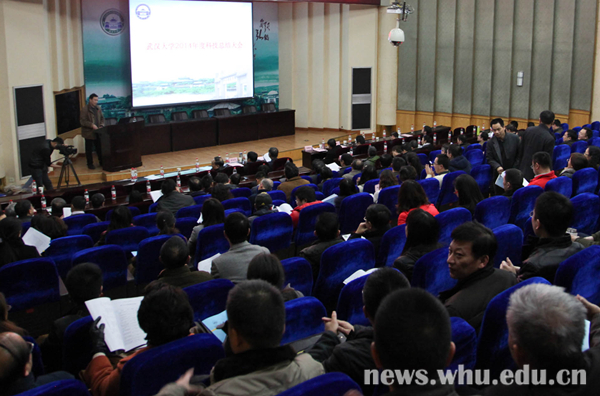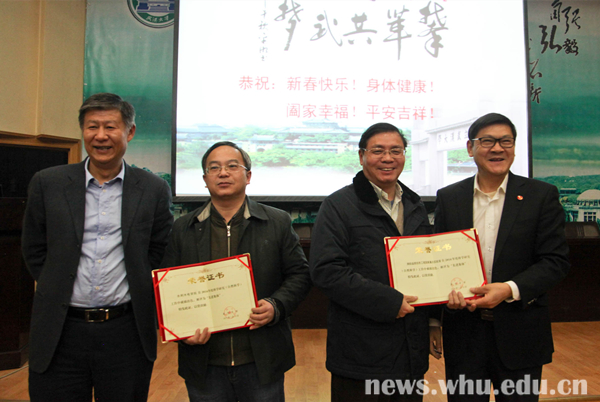On January 20, 2015, WHU held the annual meeting summarizing the scientific research of WHU for 2014.
At the meeting, Vice President Shu Hongbing pointed out that the WHU’s scientific research team have made fruitful achievements in 2014, which not only enhanced WHU’s core competence in scientific research and its profile but also united the team as one.

In 2014, the scientific research of WHU was surrounded by a number of good news. The Geospatial Information Collaborative Innovation Center was approved by the “2011 Projects”; the team of earth observation and navigation technology innovation was awarded the National Innovation Team for the first time; 19 projects have been supported by national natural science fund while 7 projects getting outstanding youth scientific fund , both hitting a record high; for the first time that a national outstanding youth fund was obtained by a hospital; the national major project on water pollution control was approved; the total number and the citation frequency of ESI papers continued to increase; 11 subjects ranked top 1%, standing at the 8th place among the Chinese universities; scientific and technological awards at various levels totaled 95, the best since the amalgamation of the former four universities.
Some departments and individuals that did a good job in 2014 were awarded at the meeting including the School of Water Resources and Hydropower Engineering and the State Key Laboratory of Surveying, Mapping and Remote Sensing and 43 individuals.

“Teamwork plays an important part in scientific research,” Li Deren said in the speech. He shared the team building experience over the last 3 decades. He also pointed out that a team leader should be responsible, cooperative, persistent, able to spend time working alone and good at identifying the national needs and the direction in which the subject is developing. In addition, a good team leader should encourage young scholars to devote themselves to scientific research and help them grow better.
Yu Dan, a professor at WHU’s College of Life Sciences, was named “the Most Beautiful Scientific Researcher”. He summarized his scientific research experience in three words: devotion, diligence and unity. “Scientific researchers don’t have vacation. A lot of time and energy is needed in order to achieve something.” he said.
Han Jin hoped that all WHU scientific researchers would make new breakthroughs in scientific research with firm believe and hard-work.
(Rewritten by Aoqi Li, edited by Diana & Sijia Hu)


